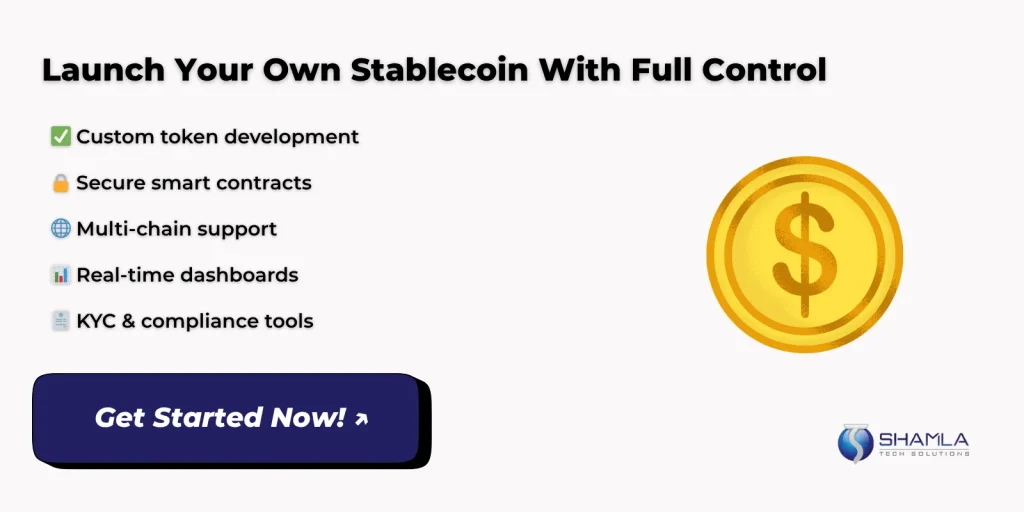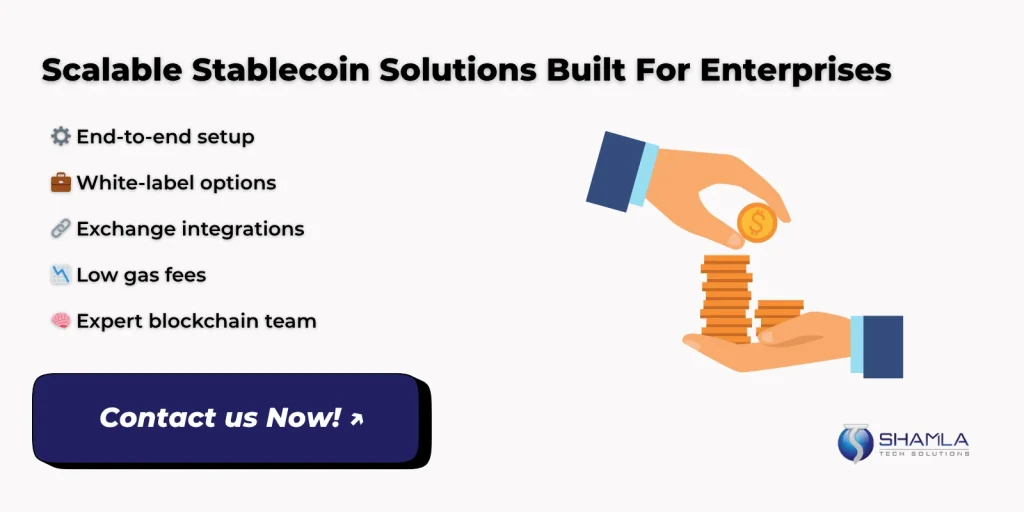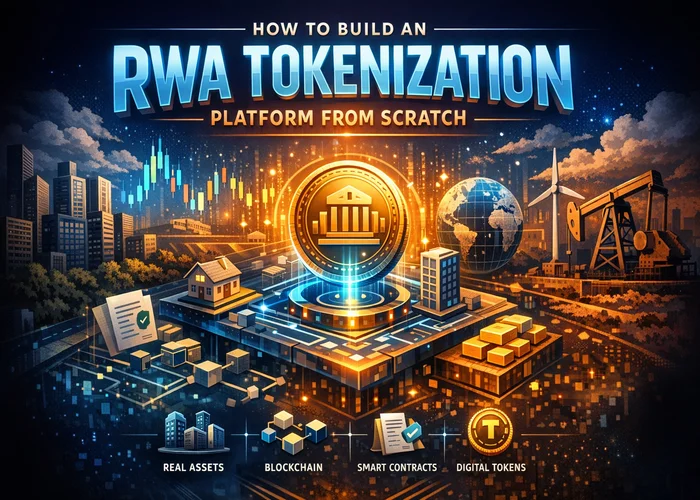Stablecoins have surged in digital finance, offering price stability and rapid settlement on blockchains. Launching a stablecoin delivers consistent value for payments, treasury management, and cross-border transfers.
Shamla Tech stands out as a trusted and top stablecoin development company, combining best practices and secure smart contract coding to ensure reliable performance. Businesses leverage these tokens for real-time remittances, programmable money, and liquidity provisioning on exchanges.
Market data shows rapid stablecoin adoption across fintech, e-commerce, and gaming sectors, driven by low fees and compliance-ready frameworks. Discover how Shamla Tech’s stablecoin development solutions power seamless token launches and measurable business outcomes today effectively.
Why Stablecoin Development is a Game-Changer for Enterprises
1. Market Trends Driving Token Adoption
2. Varieties of Token Models
3. Financial Sector Integration
4. Cross‑Border Payments and Commerce
5. Regulatory Environment for Digital Tokens
6. Scalability and Transparency Benefits
Core Stablecoin Development Solutions Offered by Shamla Tech
1. Full-Cycle Service Overview
2. Smart Contract Design and Audits
3. Custom vs White Label Solutions
4. White Label Solution Use Cases
5. Tech Stack Platforms
6. Step‑by‑Step Creation Guide
7. Role of Expert Developers
Why Choose Shamla Tech for Stablecoin Development Solutions?
Shamla Tech’s White Label and Custom Stablecoin Creation Services
1. Service Models: White Label vs Custom
2. Speed and Scale with White Label
3. Cost Breakdown Factors
4. Trusted Stablecoin Partner
5. Developer Expertise and APIs
6. Exchange and Wallet Integration
Conclusion
Shamla Tech delivers the best stablecoin development solutions through fixed steps and tested code. We build, test and launch tokens on Ethereum, BSC, Tron and Solana with secure mint‑burn rules and proof‑of‑reserve scripts. Our stablecoin development services include contract audits, API kits, and compliance modules.
Teams get ready wallet interfaces, node hosting and cross‑chain bridges under one roof. With skilled blockchain developers, CI/CD pipelines and live dashboards, clients gain fast go‑live and real‑time monitoring. Choosing Shamla Tech means on‑time delivery, clear reports and ongoing support. We make token projects reliable, scalable and transparent from planning to production with optimized performance tracking.
Ready to build your own Stablecoin with secure, scalable tech?
FAQs
1. What are the key components of a stablecoin development solution?
A complete stablecoin development solution includes smart contracts, reserve management, wallet interfaces, KYC modules, audit trails, and integration with blockchains like Ethereum, BSC, Solana, or Tron for seamless operations.











